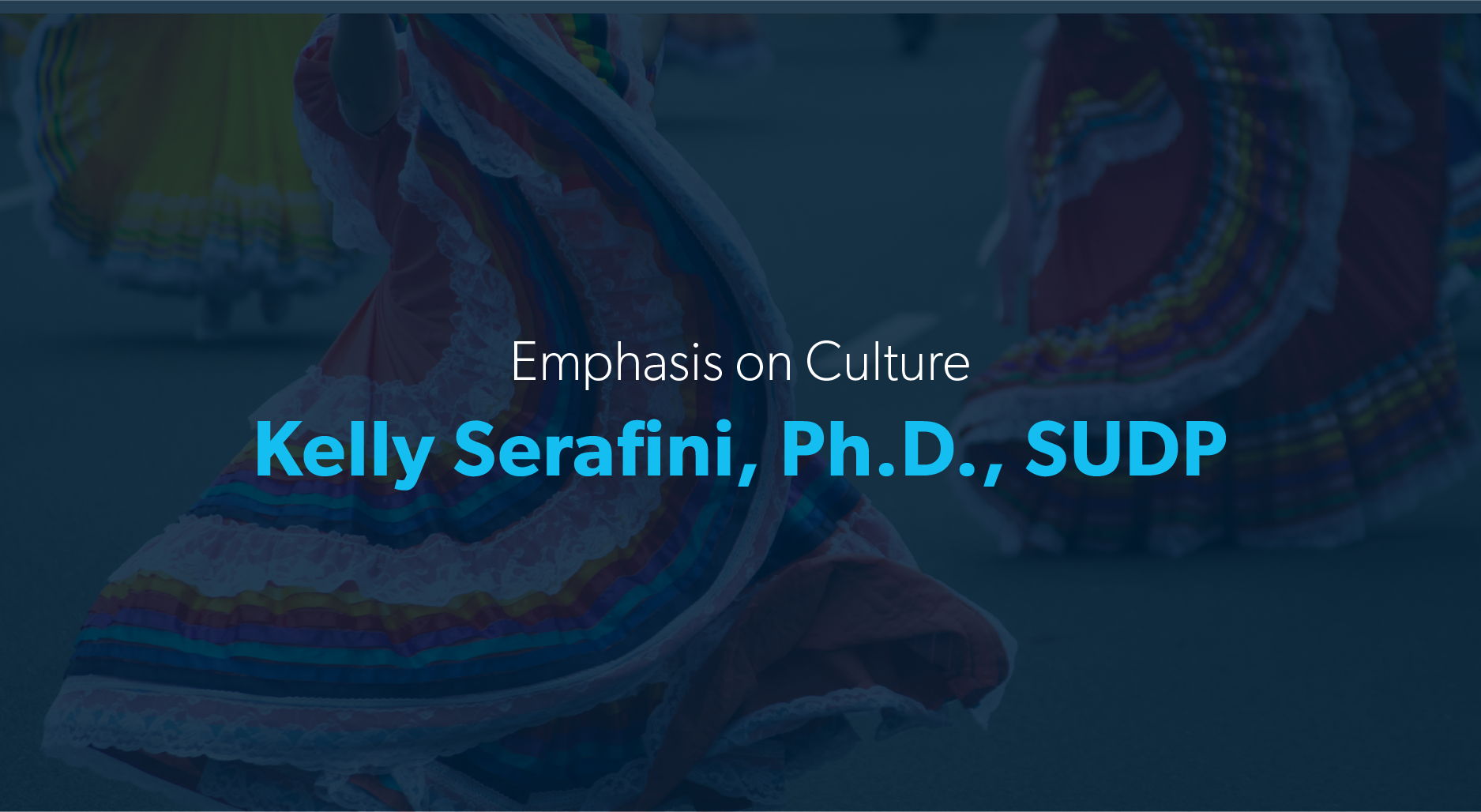Explore the Depths of the Mind through Jung’s Legacy
Our Ph.D. in Clinical Psychology: Jungian Studies Specialization program draws upon the profound work of Carl Gustav Jung, one of the most important figures in 20th-century psychiatry and psychology. Within this Clinical Psychology doctoral specialization, you’ll embark on a comprehensive exploration of Jungian psychology and learn to integrate his expansive body of knowledge into your clinical practice with contemporary and multicultural perspectives.
Within the Jungian Studies curriculum, you will study personality theory, psychoanalysis from an analytical psychology viewpoint, Jung’s original writings, fairy tales, alchemical studies, symbols, postmodern perspectives on analytical psychology, and more. You will emerge from this Ph.D. Clinical Psychology program equipped to draw inspiration from core concepts of Jung’s legacy and contribute to an ongoing discovery of the human psyche.
Saybrook University is accredited by the WASC Senior College and University Commission (WSCUC), but the Ph.D. in Clinical Psychology: Jungian Studies Specialization does not have programmatic accreditation by the American Psychological Association (APA). This hybrid online Ph.D. in Clinical Psychology program may not meet year-in-residence requirements of some state professional licensing boards or agencies. To be eligible, graduates should consult their individual state licensing boards for any additional state-specific requirements.
Saybrook University’s Ph.D. in Clinical Psychology aligns with program requirements for professional licensure in several states. You will find more information on licensure on the professional licensure and certification disclosures page.
Our Mission
The Department of Humanistic Clinical Psychology cultivates innovative, multidisciplinary, socially and community engaged scholar-practitioners through rigorous education and training that values the whole person within their unique context, including the creative, spiritual, psychological, and sociocultural dimensions of human beings.
Bachelor’s and Master’s Applicants Accepted
The Ph.D. in Clinical Psychology program welcomes applicants from multiple academic pathways, whether you’re starting with a B.A./B.S. degree or an M.A./M.S. degree. If you enter with a bachelor’s degree or without prior graduate coursework in psychology or a related discipline, you’ll complete the required M.A. in Clinical Psychology coursework as part of the Ph.D. program, building a strong foundation for advanced doctoral training.
If you already have a master’s degree in psychology or a related field, you may be eligible to transfer up to 15 credits toward elective requirements, allowing you to progress through the program more efficiently. Depending on your prior academic coursework and entry pathway, the total credits required to complete the Ph.D. program range from 100–109*.
*Credits required vary based on prior academic coursework and degree background.
Ph.D. in Clinical Psychology: Jungian Studies Specialization Job Outcomes
The Ph.D. in Clinical Psychology: Jungian Studies Specialization program is intended to prepare graduates for clinical practice. If you are interested in becoming a licensed psychologist or entering into private practice, you will need to verify the licensure requirements of your state. You may also view notes on licensure here.
Additionally, you may also explore a variety of roles at health care facilities and beyond, including:
- Clinical director
- Licensed psychologist
- University professor
- Jungian psychologist
- Archetypal therapist
- Dream analyst
- Jungian researcher
- Depth psychology educator
- Mythologist
Other Clinical Psychology Doctoral Programs
Interested in another Ph.D. specialization in Clinical Psychology? We offer multiple doctoral programs that may align more closely with your goals.
- Ph.D. in Clinical Psychology
- Ph.D. in Clinical Psychology: Advanced Psychological Assessment Specialization
- Ph.D. in Clinical Psychology: Applied Psychophysiology Specialization
- Ph.D. in Clinical Psychology: Complex Trauma and the Healing Process Specialization
- Ph.D. in Clinical Psychology: Consciousness, Spirituality, and Integrative Health Specialization
- Ph.D. in Clinical Psychology: Creativity, Innovation, and Leadership Specialization
- Ph.D. in Clinical Psychology: Existential and Humanistic Psychology Specialization
- Ph.D. in Clinical Psychology: Specialization in Teaching and Advanced Research (STAR)
Program Components
Admissions Requirements
You may apply to the Ph.D. in Clinical Psychology: Jungian Studies Specialization program with a completed B.A., B.S., M.A., or M.S. from a regionally accredited college or university. A bachelor’s or master’s degree in psychology or a related discipline is recommended. However, non-Psychology majors will be considered for admission. Applicants for the Ph.D. in Clinical Psychology: Jungian Studies Specialization degree must submit the following documents:
- An official transcript from an accredited university demonstrating successful completion of a B.A., B.S., M.A., or M.S., with a 3.0 GPA or better
- Resume or CV
- Personal statement
- One letter of recommendation from a professional reference
Sample Courses
Introduction to Analytical Psychology and the Collected Works of Carl Jung
This three-credit course serves as an introduction to the life and work of Carl Gustav Jung. Self-reflections on his life and times are memorialized in his classic autobiography Memories Dreams and Reflections. The development of his life in cultural context is critically examined in a selected biography. In “Collected Works of C.G. Jung, Volume 7: Two Essays in Analytical Psychology,” core concepts, and constructs of his theory of personality are introduced and examined. Prominent essays will also be examined in this course.
The Archetypes, the Collective Unconscious and Symbols of Transformation
This three-credit course explores essays written from 1933 forward describing and elaborating the theoretical basis for the concepts of archetypes and the collective unconscious. Specific archetypes are discussed in relation to the construct and process of individuation. The second half of the course will focus on “Collected Works of C.G. Jung, Volume 5: Symbols of Transformation,” a complex study of symbolic parallels, drawn from religion, mythology, ethnology, art, literature, and psychiatry.
Dreams, Mythology, and Fairy Tales in Theory and Clinical Practice
This three-credit course will examine Jung’s theory on dreams and the method of dream interpretation and analysis in the context of depth psychotherapy and psychoanalysis. The role of mythology is considered in analytical theory, in relation to the collective unconscious and the archetypal dimension of dreams. Lastly, the study of “fairy tales” reveals elemental psychological processes, the blocking and unblocking of libido, and the compensatory and healing activities of the Self in relationship to imbalances of ego operations.
Cost
Saybrook wants you to have the information you need to make an informed decision about your academic and career aspirations. Our cost calculator provides an estimated cost of attending Saybrook to earn your Ph.D. in Clinical Psychology: Jungian Studies Specialization degree.
Catalog
Please refer to our academic catalog for more information on the Ph.D. in Clinical Psychology: Jungian Studies Specialization program.
Program Learning Outcomes
By the end of these courses, progressively, the student will be able to:
- Describe the autobiographical and/or biographical narrative of the life of Carl Jung in historical and cultural context.
- Integrate and explain core concepts in the theory of personality from the perspective of Analytical psychology.
- Integrate and explain core concepts in the theory and practice of psychotherapy and psychoanalysis in Analytical psychology.
- Critique theories in Analytical psychology from the intersectional and relational perspectives of: cultural context, ethnicity, gender, and sexual orientation.
- Evaluate and integrate post-Jungian and postmodern perspectives in Analytical psychology.
Career Outcomes
Saybrook University prepares you to make an impact in a variety of high-demand careers. Below, you will find possible career options and salaries associated with this degree.
Data is pulled by a third-party tool called Lightcast, which includes data from sources including the U.S. Bureau of Labor Statistics, the U.S. Census Bureau, online job postings, and other government databases. The information below represents a regional and national career outlook related to this degree program*. Saybrook University is dedicated to assisting you in achieving your career goals.
*Many degree programs are intended to fulfill licensure requirements in specific states. The data shown here may not represent the state where you currently reside. For more information on how this program is applicable to the requirements of your state, please speak with your admissions specialist.
Invest in Your Future
Saybrook University remains committed to keeping higher education affordable and accessible. Our Financial Aid Department is ready to offer guidance and support in determining suitable financial assistance tailored to your needs, including potential scholarship opportunities, grants, and more.
Faculty
Department Core Faculty
Vanessa Brown, Psy.D.
Associate Chair
Department Core Faculty
Adam Duberstein, Psy.D.
Department Core Faculty
Inma Ibanez, Ph.D.
Department Core Faculty
Betz King, Psy.D.
Department Core Faculty
Isaac G. Martinez, Ph.D.
Department Core Faculty
Cynthia Palmisano, Psy.D.
Department Core Faculty
Coordinator, Advanced Assessment Specialization
Susan Rarick, Ph.D.
Department Core Faculty
Director of Clinical Training and Field Placement
Portia Rawles, Psy.D.
Department Core Faculty
Director, Complex Trauma and the Healing Process Specialization
Kelly Serafini, Ph.D.
Department Core Faculty
Bonnie Settlage, Ph.D.
Department Core Faculty
Drake Spaeth, Psy.D.
Department Core Faculty
Director, Existential-Humanistic Psychology Specialization
Interim Coordinator, Jungian Studies Specialization
Associated Faculty
Kimberley Cox, Ph.D.
Associated Faculty
Jennifer DeDecker, Ph.D.
Associated Faculty
Randy Heinrich, D.M.
Associated Faculty
Robert Cleve, Ph.D.
Associated Faculty
Director of Creativity, Innovation, and Leadership Specialization
Walker Ladd, Ph.D.
Associated Faculty
Chair of the Department of Research
Director of Specialization In Teaching and Advanced Research
Marina Smirnova, Ph.D.
Associated Faculty
Director of Consciousness, Spirituality, and Integrative Health Specialization
Dr. Eric Willmarth
Associated Faculty
Director, Applied Psychophysiology Specialization
Adjunct Faculty
Todd Dubose, Ph.D.
Adjunct Faculty
Nathaniel Granger, Jr., Psy.D.
Adjunct Faculty
Louis Hoffman, Ph.D.
Adjunct Faculty
Amy Johanson, Psy.D.
Adjunct Faculty
Silvio Machado, Ph.D.
Adjunct Faculty
Cacky Mellor, Ph.D.
Adjunct Faculty
Melissa Oleshansky, Ph.D.
Adjunct Faculty
Megan Peitrucha, Psy.D.
Adjunct Faculty
Grant Rich, Ph.D.
Adjunct Faculty
Diana Rivera, Ph.D.
Adjunct Faculty
Michael Sakuma, Ph.D.
Adjunct Faculty
Kirk Schneider, Ph.D.
Adjunct Faculty
Drew Smith, Ph.D.
Adjunct Faculty
Amy Taylor, Ph.D.
Adjunct Faculty
University Learning Experience
Our Ph.D. in Clinical Psychology: Jungian Studies Specialization program is a hybrid online program. Coursework is completed online and augmented with two five-day, in-person Residential Learning Experiences (RLE) per year. RLEs occur at the beginning of the Fall and Spring semesters in California. Every odd-numbered year, the RLE takes place during a larger Community Learning Experience (CLE), encouraging interaction with the larger Saybrook community. In this program, you will begin your studies with a virtual Welcome Week. Welcome Week activities, including a program orientation, are held online during the week before the start of Fall and Spring semesters.

Humanistic Clinical Psychology Faculty
Saybrook’s Humanistic Clinical Psychology faculty are practitioner-scholars dedicated to advancing their field through continued practice and comprehensive instruction. Meet some of our faculty members below.
UNBOUND: Humanistic Clinical Psychology
Graduate clinical psychology programs designed for those who wish to utilize a variety of evidence-based psychological interventions and approaches in clinical settings.



Ready to Take the Next Step?
Submit an inquiry and one of our admissions specialists will connect with you to answer your questions and guide you through next steps.
























